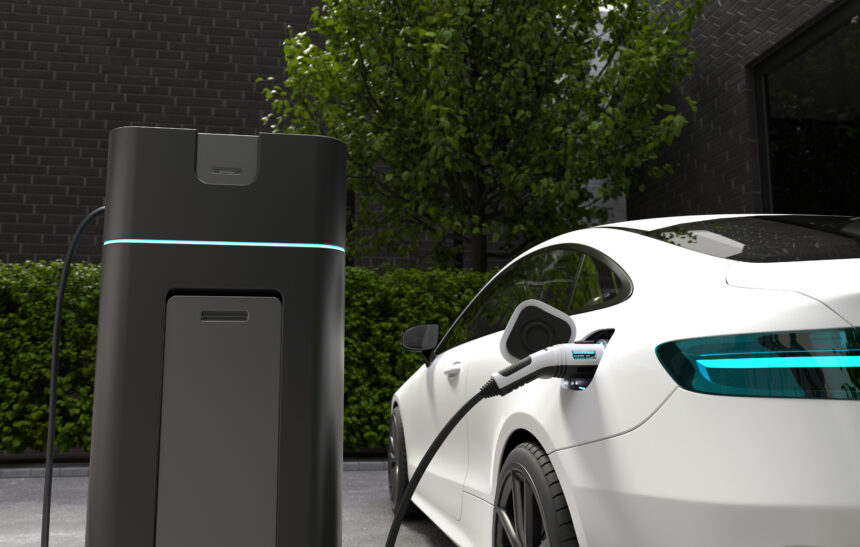Introduction
The automobile industry is undergoing a radical transformation, and at the forefront of this evolution are electric vehicles (EVs). As environmental concerns take center stage, technological advancements accelerate, and governments worldwide push for cleaner energy alternatives, electric cars are no longer just a futuristic vision—they are a rapidly growing reality. The transition from traditional internal combustion engine (ICE) vehicles to electric-powered cars is reshaping how we think about transportation, energy consumption, and sustainability.
Governments, consumers, and automakers alike are recognizing the potential of electric cars to revolutionize mobility while reducing carbon emissions. From improved battery technology to expanding charging infrastructure, the momentum behind EV adoption is stronger than ever. In this article, we’ll explore why electric vehicles represent the future of the automobile industry, the benefits they bring, the challenges they face, and the exciting innovations that lie ahead.
Why Electric Cars Are the Future
1. Environmental Benefits: A Cleaner and Greener Alternative
One of the biggest motivators driving the shift to electric vehicles is their positive environmental impact. Traditional gasoline and diesel-powered vehicles rely on fossil fuels, which, when burned, release harmful pollutants and greenhouse gases into the atmosphere. These emissions contribute to air pollution, climate change, and health problems such as respiratory diseases.
In contrast, electric vehicles produce zero tailpipe emissions. Since they are powered by electricity rather than gasoline, they eliminate exhaust fumes and significantly reduce an individual’s carbon footprint. While some critics argue that EVs still rely on electricity that may be generated from fossil fuels, studies have shown that even when considering energy production, EVs have a much smaller carbon footprint than their gasoline counterparts.
Additionally, as the world increasingly transitions to renewable energy sources such as wind, solar, and hydroelectric power, the electricity used to charge EVs is becoming greener. This means that over time, electric cars will continue to contribute to a cleaner and more sustainable future.
2. Lower Operating Costs: Saving Money in the Long Run
Beyond environmental advantages, electric cars offer significant financial benefits, particularly when it comes to operating and maintenance costs. Unlike traditional cars that have complex engines with hundreds of moving parts, EVs are designed with simplicity in mind.
Electric vehicles do not require oil changes, spark plug replacements, fuel filters, or exhaust system maintenance—all of which add up to costly repairs over time in gasoline-powered cars. Additionally, the regenerative braking system used in EVs extends the lifespan of brake pads, further reducing maintenance expenses.
Moreover, the cost of fueling an EV is substantially lower than that of refueling a traditional vehicle. Charging an electric car at home overnight often costs a fraction of what it would take to fill up a gasoline tank. Public charging stations, especially fast-charging networks, are also becoming more widespread, making EV ownership increasingly convenient. Additionally, many governments offer incentives, rebates, and tax credits to encourage consumers to make the switch to electric, further reducing the overall cost of ownership.
3. Advancements in Battery Technology: Overcoming Range Anxiety
A decade ago, one of the biggest concerns about electric cars was their limited range. Early EV models could only travel short distances before requiring a recharge, making them impractical for long trips. However, rapid advancements in battery technology have significantly improved the range and efficiency of electric vehicles.
Today, many EVs can travel over 300 miles on a single charge, rivaling and even surpassing some gasoline-powered cars. Models like the Tesla Model S, Lucid Air, and Ford Mustang Mach-E have demonstrated that long-range EVs are not only possible but are now becoming the norm.
Additionally, solid-state battery technology, which promises even higher energy density and faster charging times, is on the horizon. These new battery innovations will make EVs more efficient, lighter, and cheaper to produce, further accelerating adoption.
4. Government Policies and Incentives: A Global Push for Electrification
Governments around the world are taking proactive steps to encourage the transition to electric mobility. Policies such as tax credits, purchase incentives, and grants are making EVs more accessible to the average consumer. Countries like Norway, the Netherlands, and the United Kingdom have announced ambitious plans to phase out gasoline and diesel vehicles entirely within the next decade.
Additionally, major investments are being made in public charging infrastructure to alleviate concerns about charging availability. Expanding networks of fast chargers, battery-swapping stations, and home charging solutions are making it easier than ever to own and operate an electric car.
Many governments are also implementing stricter emission standards, pushing automakers to invest more heavily in electric vehicle production. As regulations tighten and penalties for emissions increase, car manufacturers are accelerating their shift toward electrification.
Key Features of Electric Cars
1. Zero-Emission Driving: A Step Toward Sustainability
Unlike conventional cars that release harmful gases, electric vehicles produce no tailpipe emissions, making them a crucial part of efforts to reduce air pollution and combat global warming.
2. Instant Torque: A Fun and Responsive Driving Experience
Electric motors provide instant torque, meaning that EVs can accelerate much more quickly and smoothly compared to gasoline-powered cars. This results in a more exciting and dynamic driving experience.
3. Quiet and Comfortable Operation
EVs operate almost silently, eliminating engine noise and reducing noise pollution in cities. This contributes to a more comfortable and pleasant driving experience.
4. Smart Connectivity and Advanced Features
Most modern EVs come equipped with cutting-edge technology, including over-the-air software updates, AI-driven navigation systems, and smartphone integration. Some models even incorporate semi-autonomous driving capabilities.
Challenges Facing Electric Cars
Despite their numerous advantages, electric cars still face some challenges that must be addressed for widespread adoption.
1. Charging Infrastructure: Expanding Accessibility
While charging stations are becoming more common, they are not yet as ubiquitous as gas stations. Expanding charging networks, particularly in rural and remote areas, is essential to eliminate range anxiety and encourage more consumers to switch to EVs.
2. Upfront Cost: High Initial Investment
Although the cost of EVs is steadily decreasing, they still tend to be more expensive upfront compared to traditional cars. However, falling battery costs, government incentives, and lower long-term expenses are helping to offset this price difference.
3. Battery Recycling and Sustainability
The production of lithium-ion batteries requires rare earth metals, which raises concerns about mining practices and environmental sustainability. The development of efficient battery recycling programs and alternative materials will be crucial in making EVs even more eco-friendly.
The Future of Electric Cars: What’s Next?
The future of electric vehicles is incredibly promising, with several key innovations on the horizon.
1. Autonomous Driving: The Next Evolution of Mobility
Many EV manufacturers are investing in autonomous driving technology. Self-driving electric cars could revolutionize transportation, making travel safer and more efficient.
2. Wireless Charging: Convenience Redefined
Wireless EV charging technology is currently in development, allowing vehicles to charge simply by parking over designated charging pads—eliminating the need for physical cables.
3. Affordable EVs for Everyone
As battery technology advances and production scales up, electric vehicles will become more affordable, making them accessible to a larger population.
4. Integration with Renewable Energy
Electric vehicles will play a crucial role in balancing energy grids, storing renewable energy, and reducing reliance on fossil fuels for transportation.
Final thoughts
Electric cars are not just a passing trend; they represent a necessary shift toward a cleaner, more sustainable future. With environmental benefits, lower operational costs, and rapid technological advancements, EVs are set to dominate the automobile industry. As governments and automakers invest in electrification, the transition away from gasoline-powered vehicles is inevitable.
For consumers, now is the perfect time to consider making the switch to an electric car. Whether for economic reasons, environmental responsibility, or the sheer thrill of instant torque and high-tech features, the future of driving is undoubtedly electric—and that future is already here.






